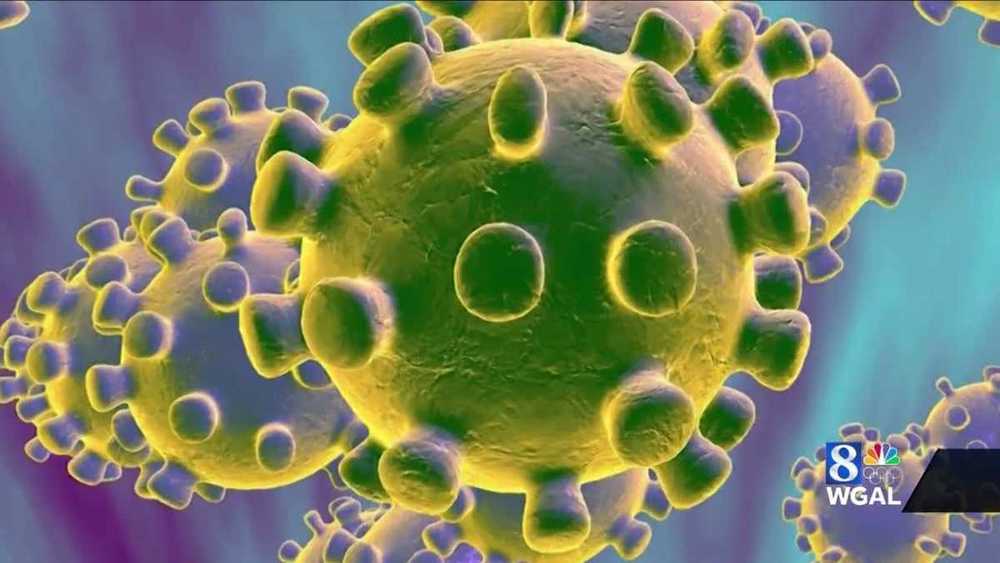The credit agency Equifax was compromised by a cyberattack that permitted China’s military to steal names, Social Security numbers and other personally identifiable information.



Facial recognition technology is likely not as safe as you may have thought. This was illustrated by a recent test where 3D printed busts of peoples’ heads were used to unlock smartphones.
Out of five tested phones, only one refused to open when presented with the fake head.
Other biometric security measures are also showing less resilience to hacking than you might expect. A group of Japanese researchers recently showed it was possible to copy a person’s fingerprints from pictures like the ones many of us post on social media.

Cybersecurity experts are issuing a warning surrounding threats of computer viruses posing online as files about the deadly coronavirus outbreak.
“It’s getting their attention, because everyone’s been in tune, around the world, on this virus,” Raleigh cybersecurity expert Giovanni Masucci said to our NBC affiliate WECT.


As the vice-chair of the Senate Intelligence Committee, he’s also become one of Capitol Hill’s most vocal advocates urging the country to take foreign technology threats seriously, both the possibility of kinetic real-world cyberattacks (such as disabling power plants or water systems) and already-underway information influence operations like the ones that upended the 2016 presidential election, as well as the looming challenges next-generation technologies pose to national security.
A former telecoms entrepreneur, the Virginia senator says that saving the industry (and democracy) might mean blowing up Big Tech as we know it.

Circa 2019
Technology has long been helping to hack world hunger. These days most conversations about tech’s impact on any sector of the economy inevitably involves artificial intelligence—sophisticated software that allows machines to make decisions and even predictions in ways similar to humans. Food waste tech is no different.
A report from the Ellen MacArthur Foundation and Google estimates that technologies employing AI to “design out food waste” could help generate up to $127 billion a year by 2030. These technologies range from machine vision that can spot when fruit is ready to be picked to algorithms that forecast demand in order to ensure retailers don’t overstock certain foods.
One London-based startup that has been generating headlines by reducing food waste is Winnow Solutions. The company took in $20 million in October from equity investments and loans to scale its AI platform, Winnow Vision, which identifies and weighs food waste for commercial kitchens. It then automatically assigns a dollar value to each scraped plate of fettuccine Alfredo or bowl of carrots dumped into its smart waste bin.

A team from the Department of Energy’s Oak Ridge National Laboratory has conducted a series of experiments to gain a better understanding of quantum mechanics and pursue advances in quantum networking and quantum computing, which could lead to practical applications in cybersecurity and other areas.
ORNL quantum researchers Joseph Lukens, Pavel Lougovski, Brian Williams, and Nicholas Peters—along with collaborators from Purdue University and the Technological University of Pereira in Colombia—summarized results from several of their recent academic papers in a special issue of the Optical Society’s Optics & Photonics News, which showcased some of the most significant results from optics-related research in 2019. Their entry was one of 30 selected for publication from a pool of 91.
Conventional computer “bits” have a value of either 0 or 1, but quantum bits, called “qubits,” can exist in a superposition of quantum states labeled 0 and 1. This ability makes quantum systems promising for transmitting, processing, storing, and encrypting vast amounts of information at unprecedented speeds.

Essentially neutrino lasers could take out missiles and also hack missiles or nukes rendering them inert in defense practices.
Sponsored Content
Scientists at the Fermi National Accelerator Laboratory (Fermilab) are working on research projects that aim to answer fundamental physics questions. How did the universe begin? What are dark matter and dark energy? What is the mass hierarchy of neutrinos? Are there other undiscovered particles beyond the currently known Standard Model of Particle Physics?

